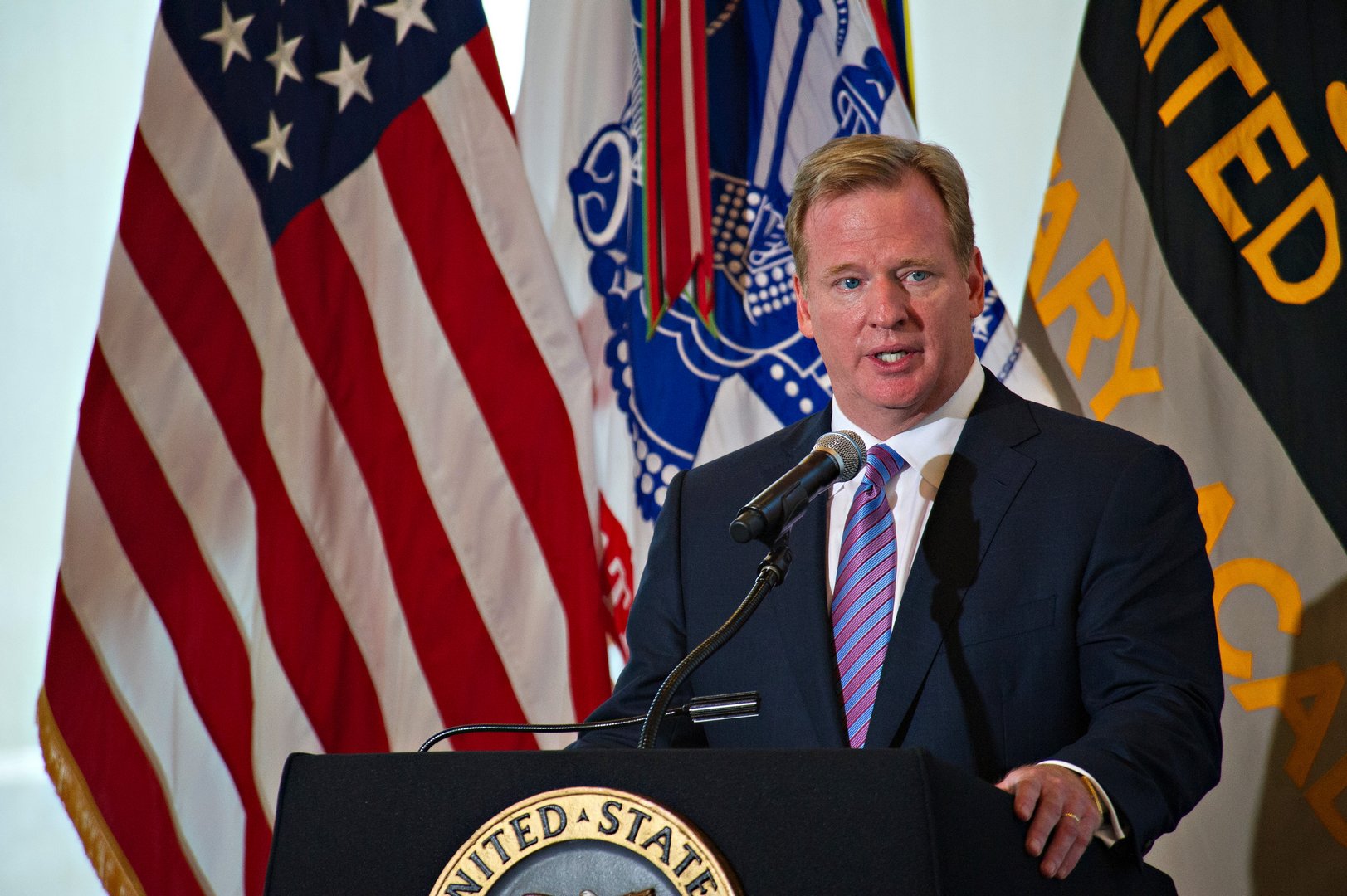H Brian Holland, Texas A&M University
In a forceful, wide-ranging decision issued Thursday, federal judge Richard Berman issued a strong rebuke of the NFL’s disciplinary authority and procedures, vacating the four-game suspension handed down by Commissioner Roger Goodell against star New England Patriots quarterback Tom Brady.
Berman’s decision finds that the punishment imposed on Brady suffered from multiple and “significant legal deficiencies,” and must therefore be overturned.
Though the saga isn’t exactly over (the NFL has already announced it will appeal), make no mistake: this is a crushing defeat for the NFL and its commissioner.
For years, the NFL system for disciplining players has operated on one overriding premise: that the Commissioner has unfettered authority to investigate, prosecute, judge and punish players, and that that authority is beyond question, even in a court of law.
To critics who would accuse the Commissioner of making it up as he goes along – applying new and different standards, procedures and punishments in nearly every case – the NFL has responded with a defiant shrug. The rights of the players, they argue, begin and end with the collective bargaining agreement (CBA). No fundamental fairness. No procedural due process. Just the Commissioner, making it up as he goes along.
Not any more. Judge Berman’s decision in the Brady case strikes at the very heart of this kangaroo court, and it begins with a simple statement of law:
The deference due an arbitrator does not extend so far as to require a district court to countenance, much less confirm, an [arbitration] award obtained without the requisites of fairness or due process.
The NFL came to Judge Berman’s court with an audacious claim: That he had no role to play here. He was not to look behind the curtain. The court was merely a rubberstamp for the Commissioner’s decision.
Indeed, it’s clear that this is how the NFL views all of its relationship, whether it’s with players, reporters or sponsors. The league’s power and the Commissioner’s authority are not to be questioned.
It’s a powerful mythology, and even many “legal experts” bought into it, asserting that Goodell’s power under the CBA was so broad as to be almost unassailable, even by a federal judge.
But it’s a mythology that Judge Berman rejected. Commissioner Goodell is not “free to merely dispense his own brand of industrial justice” (as Judge Berman put it).
He is bound by the same basic principles that guide most disciplinary procedures. NFL players are entitled to advance notice of prohibited conduct and of any potential discipline. NFL players are entitled to fair and consistent treatment. NFL players are entitled to challenge the allegations against them and to employ the basic tools for doing so.
Tom Brady was denied all of these basic protections. He was held to a standard (“general awareness”) created by the NFL after the supposed infraction occurred. He was held responsible for a policy (Competitive Integrity Policy) that by its own terms applies to owners and clubs, not players. Brady received a punishment (a four-game suspension) so severe that he could not have possibly predicted it could be imposed. His legal team was denied the right to examine a key witness (Jeff Pash) with material evidence relevant to the allegations against him. He was denied access to the very documents and witness interviews used as evidence against him.
Berman found that each of these denials were grounds for reversal.
And it’s not just that the NFL lost; it’s how the league lost. These are not small matters; they are the very foundation of how the NFL conceives of its relationship with its players.
Should their appeal fail, the NFL must now allow player representatives access to all investigative materials and the opportunity to cross-examine investigators. When cases do not fit neatly within existing rules and remedies, Commissioner Goodell will find it much more difficult to make it up as he goes along, creating new rules and new punishments without notice, or invoking “integrity of a game” however and whenever he sees fit.
It seems clear now that the NFL’s rather bizarre pursuit of Tom Brady was nothing more than a power-play. Sensing the opportunity to solidify the authority of the owners and their Commissioner, to marginalize the players union, and to set the grounds for future collective bargaining negotiations, the NFL went all in. They staked out a position so audacious that, if they won, no player could hope to challenge that authority in the future. But it seems that they overplayed their hand.
This decision is a serious blow to the power of the Commissioner. Had the NFL prevailed, the union would have been forced to expend significant capital to rework the disciplinary system during the negotiations for the next collective bargaining agreement. (The current CBA expires in 2020.)
Now it’s the NFL that’s on the defensive. Perhaps the league will have to give a little to claw back the disciplinary authority lost in Judge Berman’s court.
It’s a public relations nightmare. It’s a self-inflicted wound, the product of arrogance and avarice.
And it couldn’t happen to a nicer guy.
![]()
H Brian Holland is Professor of Law at Texas A&M University
This article was originally published on The Conversation. Read the original article.


































